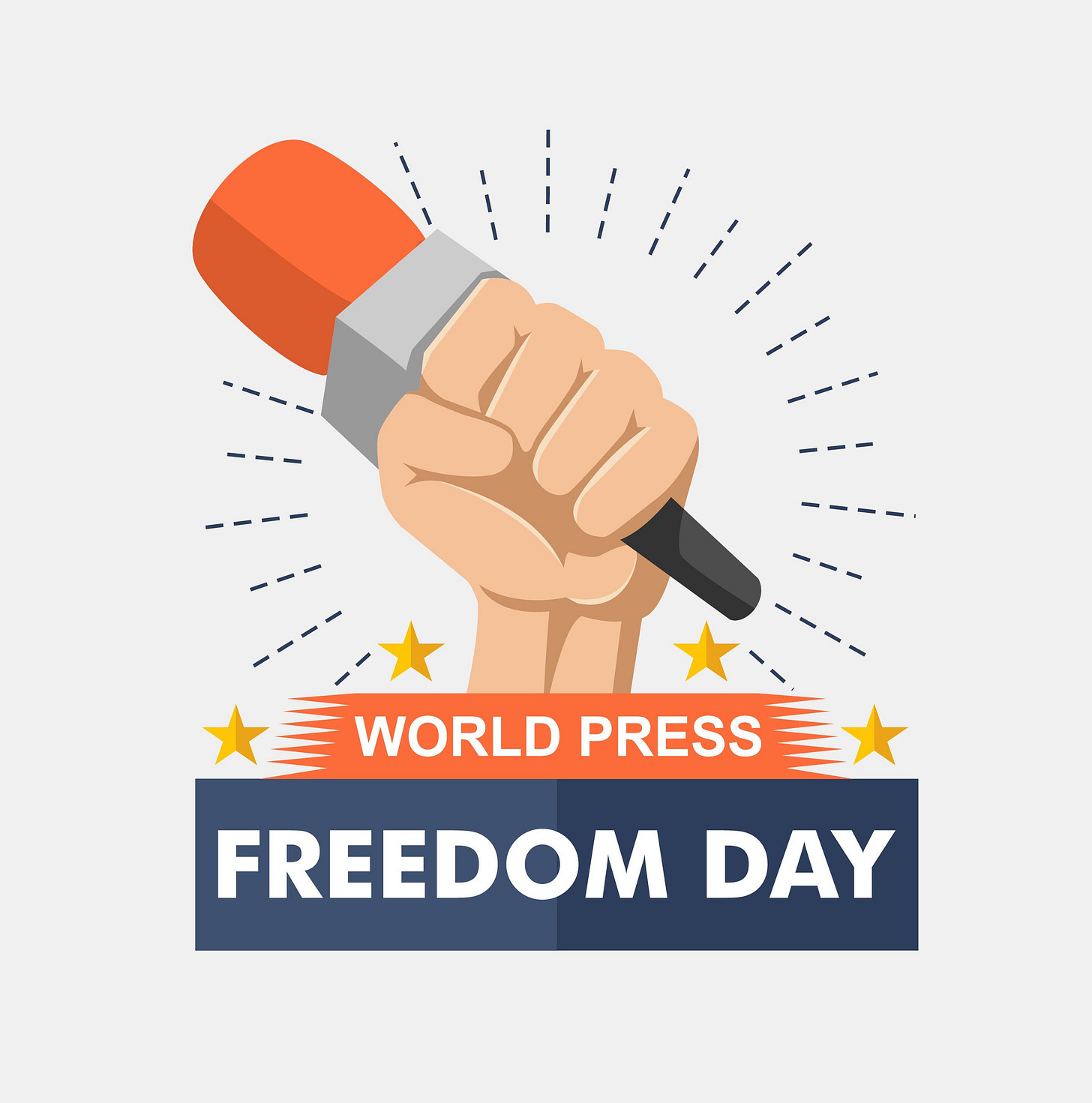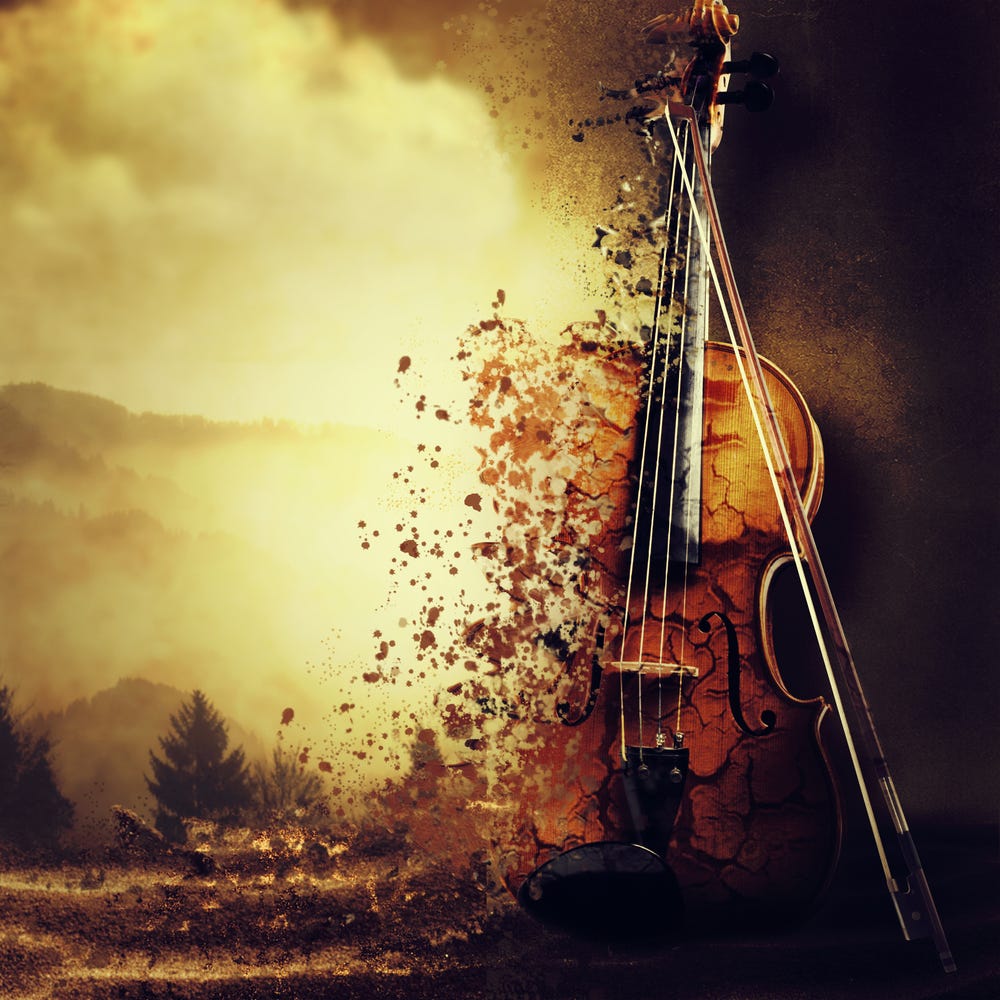E-Pluribus | May 3, 2023
Diversity and competency need not be either/or; we're all 'the press' now; and, yes, Ewelldämmerung - you'll just have to read it.
A round-up of the latest and best writing and musings on the rise of illiberalism in the public discourse:
Robert C. Thornett: Schools Can Be Diverse and Competent
Few have a problem with the concept of “diversity.” The devil is in the details of how it is defined, its context and its application. At Law & Liberty, Robert Thornett writes that there’s no need to choose between diversity and doing a competent job of giving students the best education you can offer them.
So how can schools encourage, but not force, an appreciation for diversity? One answer is simple: Let diverse students work together to accomplish difficult things. Set big common goals—in this school, one was to earn the International Baccalaureate (IB) diploma—then continuously refocus students’ collective energies on achieving them: study for the test, win the game, enliven the discussion, create harmony in the dorms, travel and see the world. In the process, the students will have to negotiate their differences and find common ground to reach their goals.
[ . . . ]
Today’s DEI movement has gone terribly wrong by alienating rather than mediating. Rather than focusing students on big common goals and helping them recognize their commonalities, it tears them apart by focusing their attention on contending even the smallest divisive issues, as indicated by the DEI jargon term “microaggressions.” DEI-gone-wrong is built on what Mitchell calls “the politics of innocence”: dividing society into guilty transgressor identities (ex. “the patriarchy”) and innocent victim identities, based on past suffering, wherein transgressors owe victims a “spiritual debt.” To pay off this debt, the transgressors are silenced and purged, while the victims dictate the rules. Two wrongs make a right, says DEI-gone-wrong. This actively destroys the middle ground. The politics of innocence thus shuts down the formation of Tocquevillian associations before it can start, leaving society with no way out of isolation, fragmentation, and conflict.
Read the whole thing.
Almar Latour: Press Freedom Is Your Freedom
If (as I mentioned above) few have a problem with diversity, even fewer have a problem with the concept of freedom of the press. But journalism’s reputation these days is taking a beating. Almar Latour reminds us at the Wall Street Journal that reporter Evan Gershkovich’s arrest in Russia should be a warning to all that our liberty cannot be taken for granted.
As we observe World Press Freedom Day Wednesday, Evan’s incarceration offers a reminder of the fight we’re in: It’s autocrats versus the pen—Orwellian manipulation of information versus reliable information as a cornerstone of free society. The stakes are high: Without press freedom there is no free society.
In 2023, the press is under significant threat world-wide. The world’s autocracies are trying to stamp out meaningful journalism. A record number of journalists were imprisoned in 2022, according to the Committee to Protect Journalists—a figure that has nearly doubled since 2015. It was also a deadly year for the press, according to CPJ, which says at least 67 journalists and media workers were killed in 2022, the most since 2018.
In contrast to the cold, hard statistics, the agony for these journalists and their families is immeasurable, as is the damage to their societies. Austin Tice, a freelance journalist who covered Syria for publications including the Washington Post, was kidnapped 11 years ago and remains missing. Radio Free Asia has seen nine of its journalists and bloggers jailed or detained throughout the region. And in Hong Kong, publisher Jimmy Lai remains imprisoned.
In liberal democracies, the press faces massive challenges as well, though not through arbitrary incarceration. Citizens of democracies everywhere are increasingly checked out from news headlines, isolating themselves with entertainment and one-sided hot takes. Once-promising news startups have collapsed. High-quality local news is increasingly scarce. In the U.S. alone, newspapers die at the rate of two a week, according to a report issued by Northwestern University last year. The report also found the number of journalists in the U.S. declined from 75,000 in 2005 to 31,400 in 2021. Journalism has all but disappeared from many communities, leaving citizens less informed and creating an information vacuum.
Read it all here.
Don Baton: Ewelldämmerung
Outside of classical music fans, the title of Don Baton’s book review of Philip Ewell’s latest music theory book for City Journal might fall flat (click here if you count yourself in that group). However obscure the title, the substance of the piece will sound very familiar: to Ewell, Western civilization, even its music, is oppression.
[Hunter College’s Philip] Ewell’s thesis, and I don’t oversimplify, is as follows: there is no such thing as Western civilization. “Western civilization,” in his view, is a malignant fiction perpetrated by whites (particularly white Americans) to subjugate nonwhite cultures. Thus, the cultural proceeds of Western civilization—in Ewell’s area of expertise, the canon of Western music and the music theory that undergirds it—are illegitimate artifacts of the “mythologies of greatness contained in a falsely imagined and narrowly conceived western civilization.” The Western canon, whether in literature, art, or music, is not a celebration of the great achievements of our shared culture but a tool for keeping white stuff in and nonwhite stuff out.
The cornerstone of this argument is, of course, a falsehood. Western civilization exists, and we are all living in it. Ewell argues the opposite only by sleight of hand. In his purported debunking of Western civilization, he focuses on the debate over whether the field of “Classics”—historically focused on Greco-Roman civilizations—ought to include Egyptian or other nonwhite civilizations as part of the same cultural lineage. But while Ewell wastes time contemplating the ancient historical frontiers of the West, he almost totally ignores the real connective tissue that binds Western history and culture together: the advance of Christendom.
This omission would be hard to comprehend in a historian. But in a theorist of classical music, an art form whose inherited traditions of melody, harmony, and composition arose nearly entirely out of the Catholic Church and its adherents, it is shocking. When Christianity appears in Ewell’s book, it is as a mere pretext that “played an enormous part in creating the many mythologies of the west,” rather than what it was: the political, social, and artistic glue that holds the West together.
[ . . . ]
Unsurprisingly, the fiction leads Ewell to conclude that the canon of classical music is, like Western civilization, “a mythological human construct meant, in very large part, to enshrine white-male dominance in the academic study of music.” Certainly, no one would dispute the idea that hierarchies of artistic value are “human constructs.” But who creates these hierarchies and “means” them to “enshrine white-male dominance”?
Read it all.
Around Twitter
Via John McWhorter, a review of Robin DiAngelo's book White Fragility by University College London professor Alan Sokal, but unfortunately no link to the other book McWhorter mentions in the tweet:
Most seem to see “book banning” like Supreme Court Justice Potter Stewart described obscenity: "I know it when I see it." Here, The Atlantic’s Caitlin Flanagan and cybersecurity specialist James Gillespie call for a more strict and common definition.
And finally, the question “What is a woman” has been superceded by the even more intriguing question, “What are wimmin?” - via Christopher Rufo and Megan Menchaca:









